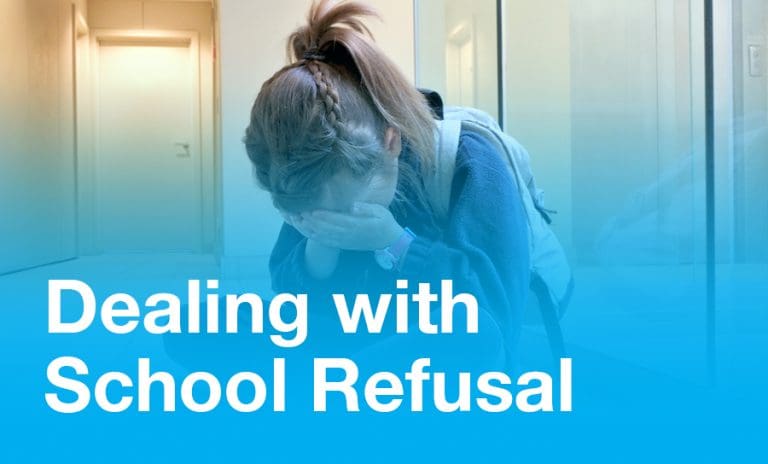Our College psychologist Ms Jody Sims has put together a blog post to help parents, students and staff deal with the important topic of school refusal. The blog post is part of a student well-being blog which will be published twice a term.
Dealing with School Refusal
– by Ms Jody Sims, College Psychologist
A certain degree of anxiety and fear about school and school camps, especially following an extended absence such as a weekend or school holiday, is normal for children. However, some students experience excessive anxiety which can result in refusal to attend school. As it is a difficult problem to manage, school refusal creates stress for parents, students and teachers.
What is School Refusal
School refusal occurs in about one to two percent of school children. Students who experience excessive anxiety resulting in refusal to attend school often complain of headache, stomach-ache or other physical illness.
School refusal causes much distress to the child and also interferes with the child’s social and educational development. The more time the student is away from school, the more difficult it is for them to resume normal school life.
School refusal is different from truancy in that the child is staying at home with the knowledge of the family and despite their best efforts to enforce attendance. Students who refuse school do not typically engage in antisocial behaviour that is associated with truancy, such as lying, stealing or destruction of property.
School refusal can be a result of many factors. The student may be having academic difficulties, difficulties with peers, or struggling with anxiety or depression. It is important that the underlying causes are identified, and the treatment plan is tailored to each individual’s circumstances.
Consequences of school refusal
- Poor success academically – students who miss a significant amount of schooling find it difficult to keep up with their peers. It is also much harder to catch up when they do eventually return to school. The school may find the student has gaps in their knowledge that need to be identified and managed.
- Affects social network – students find it difficult to maintain their existing relationships due to the large number of absences. This can then further compound the school refusal when they do attempt to re-enter the school environment as they feel isolated and alone.
- High risk for mental health problems – students who experience school refusal are more likely to have comorbid psychiatric disorders such as depression and anxiety.
- Affects problem solving and coping skills – students who avoid school due to anxiety or issues at school, find it harder to develop the ability to cope with problems and to develop effective coping strategies
Developing a plan to manage school refusal
- It is important to identify problems early. The earlier intervention and support is provided the better the outcomes for the student. Parents should contact their school at the first sign that their child is struggling to attend school.
- School refusal requires a collaborative plan between the school, parents and any outside care providers (e.g., Psychologist, General Practitioner).
- The school should work with the student and family to understand the factors that are underlying the refusal to attend school (e.g., separation anxiety, peer issues, academic concerns).
- The school and the family should maintain close contact even during extended periods of absence to ensure the student does not become disconnected from the school. It is also important to ensure the student maintains links with their friendship groups at school.
- Implement a morning routine. This provides boundaries and predictability for the student and will reduce anxiety.
- Discuss with your school a graduated return to school. Sometimes it is easier for a student to manage their anxiety if they only have to do it for a short period of time. This may mean a student attends half days for a month, slowly building up to more time at school until they are attending full-time.
- Speak with the school about how they can support your student when they arrive at school. This may mean providing them with a quiet space where they can go when they are feeling anxious, or overwhelmed
- Let the school know if there are any academic or social concerns so that these can be managed and the student can be provided with the appropriate support.
- Acknowledge your child’s efforts towards school attendance.
If your child is struggling to attend school or if you have any concerns related to a student’s well-being, please contact a member of the Student Services team immediately. We work diligently to provide a safe and nurturing community that encourages students to respect themselves and others, and we would love to help.
For further information about the topic of school refusal, please refer to:
https://www.kidsmatter.edu.au/mental-health-matters/school-refusal
Ms Jody Sims
Psychologist



